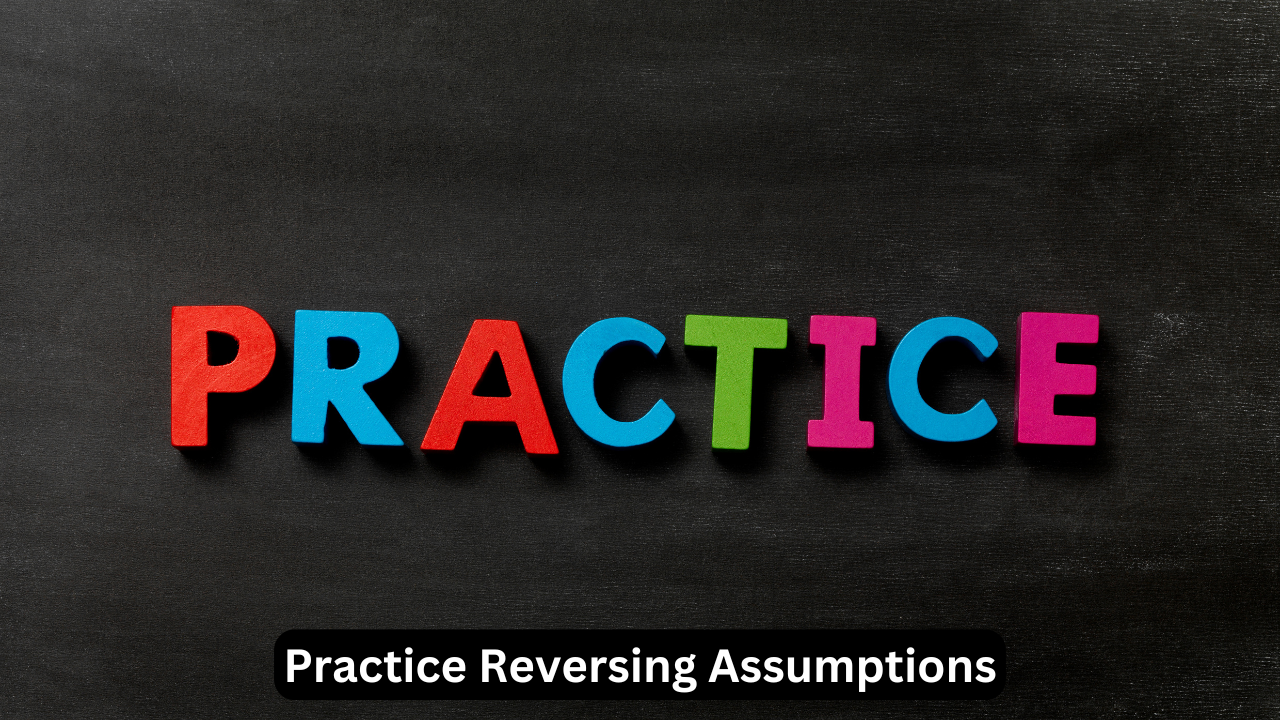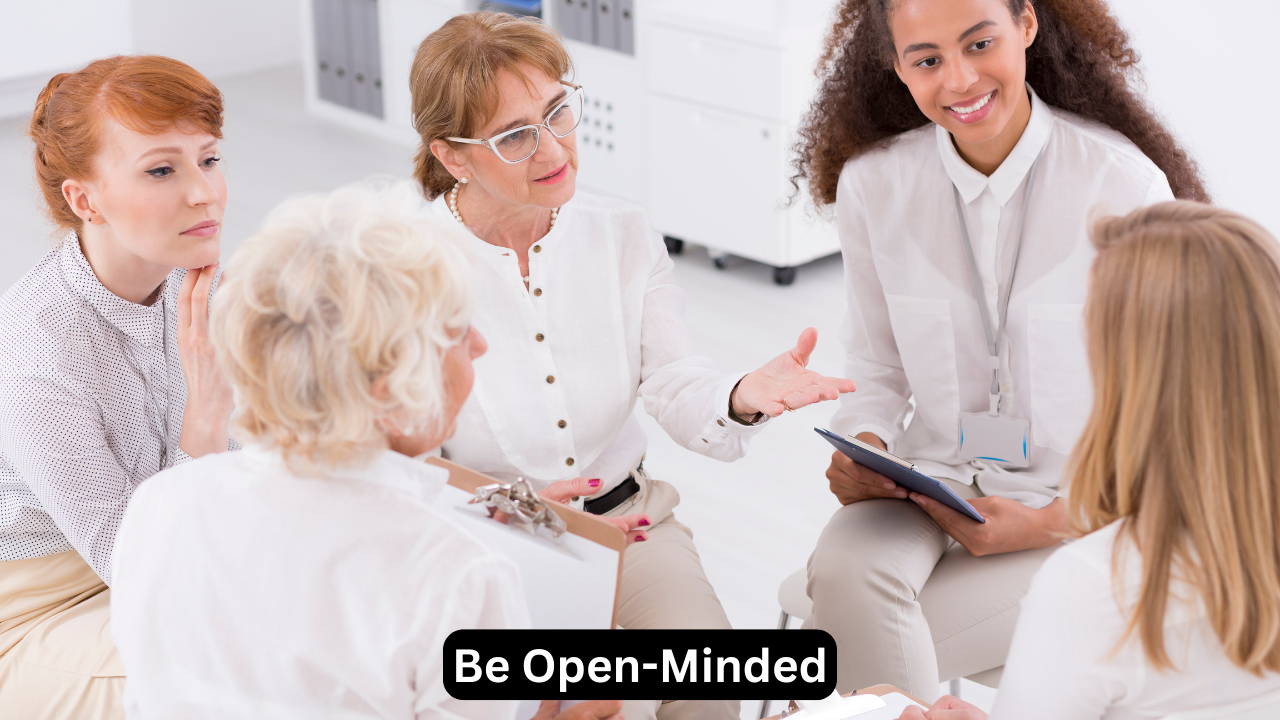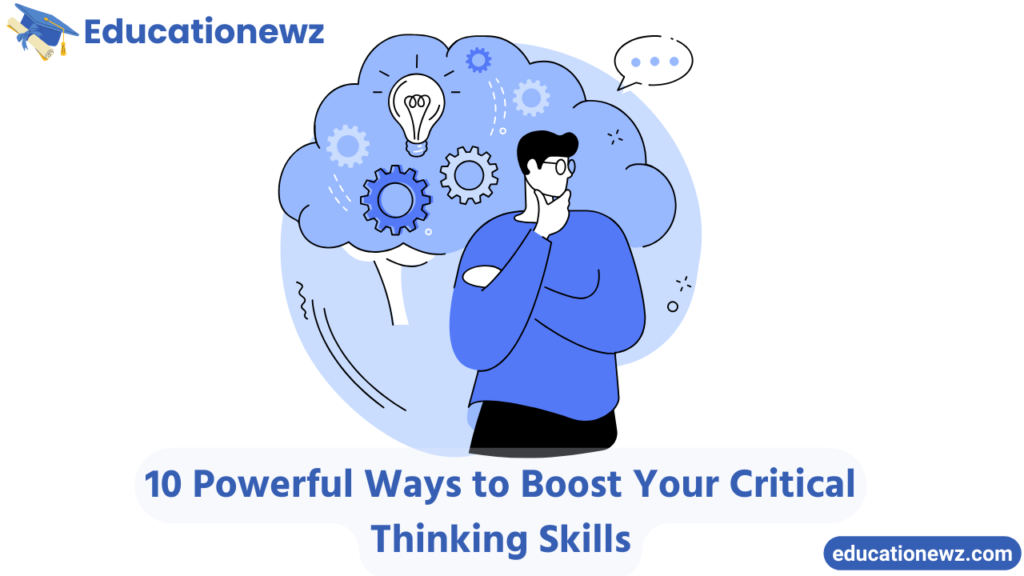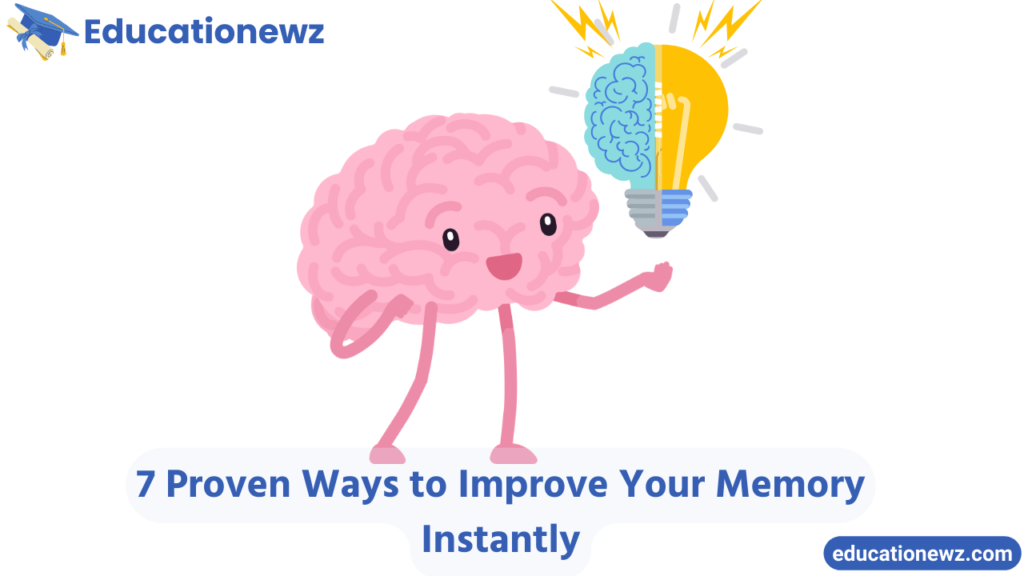Critical thinking is essential for evaluating information, solving problems, and making informed decisions by applying clear reasoning and questioning assumptions to reach well-supported conclusions.
Critical thinking is an essential skill that empowers individuals to process information more effectively, solve problems more efficiently, and make sound decisions. Whether you are navigating complex situations at work, solving academic problems, or simply making day-to-day decisions, strengthening your critical thinking skills is crucial. In this article, we will explore 10 ways to improve your critical thinking skills and boost your ability to evaluate information, synthesize ideas, and make more reasoned decisions.
What Is Critical Thinking?
Critical thinking is not just about being critical but about evaluating information carefully and logically. It involves analyzing, evaluating, and synthesizing data to come to conclusions that are not only rational but also aligned with reason and evidence. Without critical thinking, it becomes easy to rely on biases, assumptions, or misinformation. Therefore, honing these skills can lead to better decision-making, increased creativity, and a deeper understanding of the world around us.
In the following sections, we’ll go over 10 effective ways to improve your critical thinking abilities. These strategies will allow you to engage with information in a more structured and logical manner.
Why We Need Critical Thinking
Critical thinking is essential because it enables us to analyze information, make informed decisions, and solve problems effectively. Instead of simply accepting ideas at face value, it encourages questioning, evaluating evidence, and considering alternative perspectives. In a world filled with misinformation and complex challenges, critical thinking helps us navigate through noise and come to logical, well-reasoned conclusions. It also fosters creativity, allowing us to approach issues from different angles and develop innovative solutions. In short, critical thinking empowers us to make smarter choices and better understand the world around us.
1. Ask Basic Questions

One of the most straightforward ways to improve your critical thinking skills is by asking simple yet profound questions. When confronted with any situation or problem, go back to the basics:
- What do you already know about this situation?
- How do you know that?
- What is the goal or purpose of your investigation?
By asking such fundamental questions, you set the foundation for deeper analysis and avoid jumping to conclusions. Often, the simplest solutions come from clarifying what is essential. The practice of continually questioning helps you remove assumptions and forces you to gather the necessary evidence before forming conclusions.
2. Challenge Your Assumptions
Assumptions can significantly cloud our thinking. Whether these assumptions are about people, situations, or ideas, they often lead us to conclusions that are not well thought out. A core aspect of critical thinking is recognizing when you are assuming something to be true without proper evidence.
Example:
- Assuming someone’s behavior is driven by a particular motive without questioning it.
- Believing that a solution will work simply because it worked in the past without testing its relevance in the current situation.
By challenging your assumptions, you open yourself to new perspectives and alternative solutions. Always ask: What if I am wrong?
3. Be Aware of Cognitive Biases
Cognitive biases are mental shortcuts that help us make decisions quickly but can lead to errors in judgment. These biases often arise from past experiences, emotions, or societal conditioning. Some of the most common biases include confirmation bias, anchoring bias, and availability bias. Recognizing these biases is essential to improving critical thinking.
Common Cognitive Biases:
| Bias Name | Description |
|---|---|
| Confirmation Bias | Tendency to seek information that confirms your beliefs |
| Anchoring Bias | Relying too heavily on the first piece of information encountered |
| Availability Bias | Giving undue weight to information that is most readily available |
Understanding these biases helps you overcome the natural inclination to think automatically. Instead, you can assess all available data and make more objective, reasoned decisions.
4. Practice Reversing Assumptions

When solving a problem or analyzing a situation, it’s easy to assume that cause A leads to effect B. However, critical thinking often involves questioning this cause-and-effect relationship. Try reversing your assumptions or hypotheses to see if they still hold true when the situation is viewed from the opposite angle.
Example:
- If X leads to Y, then consider if Y could have caused X.
By considering alternatives, you deepen your understanding and often arrive at creative solutions you might not have thought of initially.
5. Use Structured Problem-Solving Models
One effective way to improve critical thinking is by applying structured models to analyze problems. For instance, using frameworks like SWOT Analysis (Strengths, Weaknesses, Opportunities, and Threats) helps you evaluate situations from multiple angles systematically.
SWOT Analysis Table:
| Strengths | Weaknesses |
|---|---|
| What are the internal advantages? | What are the internal challenges? |
| Opportunities | Threats |
| What external factors can benefit you? | What external factors may harm you? |
Such frameworks guide you to think more thoroughly and ensure that all factors are considered before making a decision.
6. Evaluate Evidence Carefully
When gathering evidence, it’s crucial to assess its reliability. Information can be manipulated, misinterpreted, or misrepresented. As a critical thinker, you need to evaluate the credibility of your sources, the context in which the data was collected, and the methodology used to obtain it.
Key Questions to Ask:
- Who gathered this evidence?
- How was it collected?
- What is the context behind this data?
Being able to scrutinize evidence carefully prevents you from relying on misinformation or biased data, leading to more sound conclusions.
7. Think for Yourself
While it’s important to gather information from experts, never forget to engage your own reasoning and intuition. Some of the greatest thinkers in history—like Einstein and Newton—relied heavily on their own critical thinking skills, even when others disagreed with their conclusions.
Don’t be afraid to question popular opinion and think independently. Often, the most innovative ideas come from those willing to challenge established norms and think for themselves.
8. Learn to Synthesize Information
Critical thinking isn’t just about analyzing or evaluating information—it’s also about bringing diverse ideas together. Synthesis is the process of combining various perspectives, evidence, and insights to create new solutions or understandings. A critical thinker can pull together pieces of information that may seem unrelated and make new connections.
Example:
- Combining knowledge from different disciplines (e.g., technology and business) to develop a groundbreaking startup idea.
This ability to synthesize helps you see the big picture and identify patterns that others may overlook.
9. Be Open-Minded

While it’s essential to question assumptions and evaluate evidence, it’s also crucial to remain open to new ideas. Critical thinking involves being flexible and willing to change your mind when presented with new evidence. Don’t become too entrenched in your views; be willing to adapt when necessary.
Benefits of Being Open-Minded:
- Broader perspectives: Exposure to diverse ideas helps you grow intellectually.
- Improved decision-making: Open-mindedness prevents you from jumping to conclusions based on limited information.
By practicing openness, you become more adaptable and better equipped to handle complex, ever-changing scenarios.
10. Engage in Reflective Thinking
Lastly, critical thinking requires a reflective component. Regularly reflecting on your thinking process and the decisions you’ve made is key to improving your reasoning over time. Take a step back and ask yourself:
- What assumptions did I make?
- What could I have done differently?
- Was my reasoning flawed at any point?
Reflecting on your thoughts allows you to recognize patterns in your decision-making and develop strategies for improvement in the future.
Conclusion
In summary, critical thinking is a skill that anyone can improve with deliberate practice. By asking the right questions, challenging your assumptions, staying open to new ideas, and using structured problem-solving methods, you can enhance your ability to think critically. This skill will not only help you in your academic life but will also serve you well in professional and personal decisions.
By following the 10 strategies outlined in this article, you’ll be well on your way to becoming a more effective critical thinker. Remember, critical thinking is a lifelong journey that requires constant refinement. The more you practice, the more adept you’ll become at evaluating information and making well-reasoned decisions.
FAQs
- What is critical thinking?
- Critical thinking is the process of analyzing, evaluating, and synthesizing information to make better decisions and solve problems effectively.
- Why is critical thinking important?
- It helps individuals make informed decisions, avoid biases, and solve complex problems, both academically and in real-life situations.
- How can I improve my critical thinking?
- By questioning assumptions, analyzing evidence carefully, and practicing reflection, among other strategies outlined in this article.
- What are cognitive biases?
- Cognitive biases are mental shortcuts that lead to errors in judgment. Being aware of them is crucial for improving critical thinking.
- What is the role of reflection in critical thinking?
- Reflective thinking helps you assess your past decisions and identify ways to improve your reasoning in future situations.
- Can critical thinking be learned?
- Yes, critical thinking is a skill that can be developed with practice, patience, and a willingness to learn and grow.
- Is critical thinking the same as problem-solving?
- While they overlap, critical thinking is a broader concept that includes problem-solving, evaluation, and reasoning.
- What are the key characteristics of a critical thinker?
- A critical thinker is open-minded, curious, reflective, and able to analyze and synthesize information from multiple perspectives.
Please follow our blog Educationewz.



